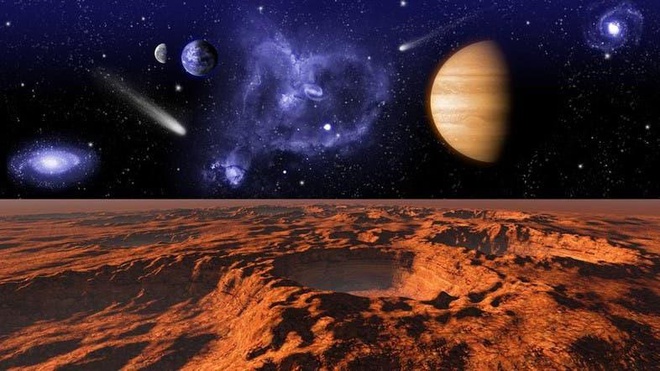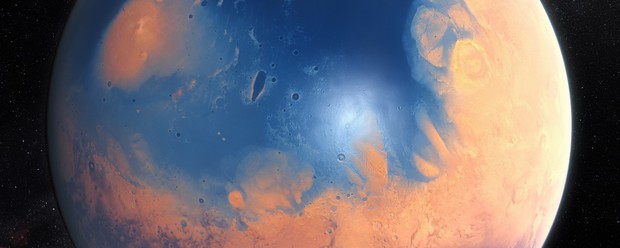We are not ready for the changes that life on the Red Planet may bring.
Is there life on Mars? This is a question that has troubled science from the moment it made the decision to explore this planet.
Over time, we are removing the mysteries step by step, in preparation for the journey to bring humans to Mars. But what about the other question? Recently, a NASA expert revealed a little bit of information to us. That we are very close to the answer, on the verge of finding real life, but humanity is not ready for it.
According to the plan by 2020, there will be two missions to send self-propelled robots to Mars to dig deep into the surface of the planet and find life there. In other words, we’ll probably find out in the next few years.
If the answer was yes, it would be a revolutionary shock discovery. But “we are not prepared at this time,” said Dr Jim Green, director of NASA’s Department of Planetary Sciences.
“I am very worried. I think we are very close to discovering life and announcing it. But this is going to create a new revolution in thought, and I think we are not ready to accept it.”
By 2020, Earth and Mars will have fairly close orbits. This creates the opportunity to conduct new Mars-related missions, and there are already five space agencies from countries looking to take advantage of this.
Space agencies will send rovers (self-propelled robots) to continue exploring Mars
China and UAE are preparing for their first liftoff, carrying probes and self-propelled robots to the red planet. NASA and ESA (European Space Agency) have also sent robots to probe the surface for organic traces.
According to Dr. Green, these projects are all likely to be successful, and if that happens, like the 16th century Nhat Tam theory (the sun is the center), everything we know has to change. That’s why he thought the Earth was not prepared for this.
“What will happen next will be a whole new set of questions. Does life there look like us? How is the earth related? Can life move from planet to planet?” …? “
NASA’s self-propelled Mars robot is scheduled to land in February 2021. ESA’s Rosalind Franklin robot landed a month later. The two will explore areas of ancient lakes and oceans that contained water.
Mars is not the only place in the universe that may contain water. Venus also had water three billion years ago, before its atmosphere was filled with poisonous gases 700 million years ago.
“There is no reason to think that there won’t be other civilizations there, because we have already found a lot of exoplanets. The life-sustaining concept of ‘Goldilocks’ may be required. Must be changed. “



